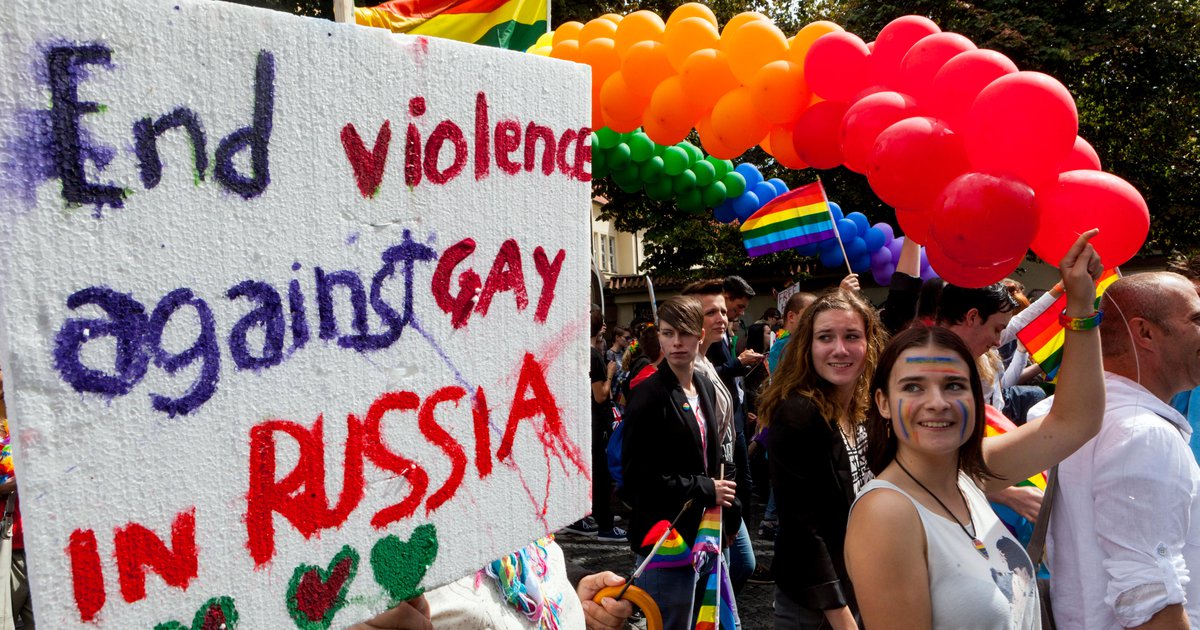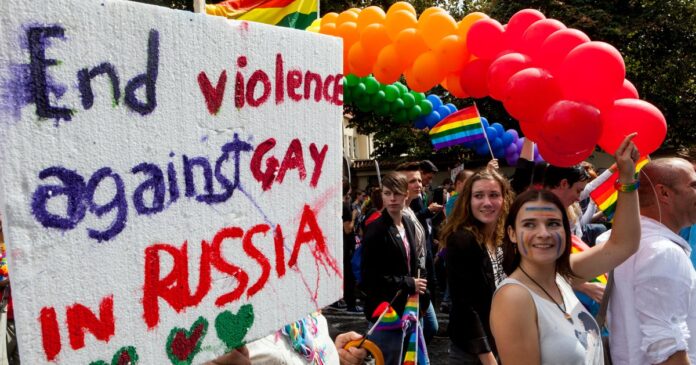
What are the proposed amendments?
On 18 July, a group of lawmakers from the Communist Party (KPRF) and ‘A Just Russia’ submitted a bill that would make providing information about homosexuality – and even childless families – legally on a par with pornography or promoting suicide, violence and criminal or extremist behaviour. The law would apply to information provided to all ages, not just minors.
The draft law is a “reaction to a change in approaches to the modern understanding of family, gender, the basics of childbearing, aimed at maintaining the current law and order in the Russian Federation,” Duma deputies wrote in the bill’s explanatory note.
There’s a chance that the Kremlin could reject this legislation because it wasn’t authored by the ruling party, but United Russia has similar bids in motion. On 7 September, deputies of Putin’s conservative party and State Assembly of Russia’s Republic of Bashkortostan submitted a draft law that would ban the promotion of “childfree families” among children under 18.
Voluntarily refusing to have children “goes against traditional family values and the state policy of the Russian Federation”, the bill’s explanatory note said, citing a risk of “depopulation”.
The proposals comes after Russia dropped out of the Council of Europe, the continent’s human rights watchdog, on 15 March, less than a month after its invasion of Ukraine.
What happens if you break the law?
An individual who breaks the gay propaganda law faces a fine of up to 100,000 rubles (about £1,400) and can be jailed for up to 15 days. Organisations can be fined up to one million rubles (about £14,000) or forced to suspend operations for 90 days. Foreigners who violate the law may be deported.
Russian activists, film directors, journalists and health workers have already been penalised.
Under the proposed legislation submitted in July, fines would increase to 400,000 rubles (about £5,690) for indivduals and up to 2 million rubles (about £28,000) for organisations.
What have been the effects on LGBTIQ organisations?
The ‘gay propaganda’ law poses online obstacles for Russian LGBTIQ rights organisations, requiring their websites to carry an 18+ label. But if the proposed information amendment passes, then these sites would most likely be shut down.
Even though many of these online platforms follow the existing regulations, they’re still vulnerable to closures. In 2018, gay.ru, an information and entertainment portal on homosexuality, was blocked in Russia despite displaying the over-18 age restriction.
For a decade, LGBTIQ rights groups and other non-governmental organisations receiving funds from abroad have also been legally required to self-identify as “foreign agents”.
This echoes the National Security bill proposed by conservative MP Priti Patel, which would make it an offence for journalists or publications receiving funding from a foreign state to report on ‘restricted’ official information.
Russia’s Ministry of Justice added the Russian LGBT Network a prominent gay and transgender rights umbrella group, to the “foreign agent” registry in November last year.
Since then, an increasing number of LGBTIQ rights groups have been targeted – and even forcibly closed. This April, the Charitable Foundation Sphere, which provides financial support to LGBTIQ initiatives across Russia, was liquidated.
Did the ‘gay propaganda’ law result in increased violence against LGBTIQ people?
Following the introduction of the ‘gay propaganda’ law almost a decade ago, the most flagrant violations of LGBTIQ rights have been documented in the North Caucasus, especially in Chechnya, where security forces have illegally detained, kidnapped, arrested, tortured and killed gay and transgender people.
In 2021, 78% of respondents to a nationwide survey by the Russian LGBT Network reported that they had faced violence or discrimination in connection to their gender identity and/or sexual orientation. Nearly a third of the incidents of violence were committed by organised homophobic and transphobic vigilante groups.
The survey also found that law enforcement and judicial systems refuse to investigate such crimes, despite the fact that homosexuality was decriminalised in Russia in 1993.








